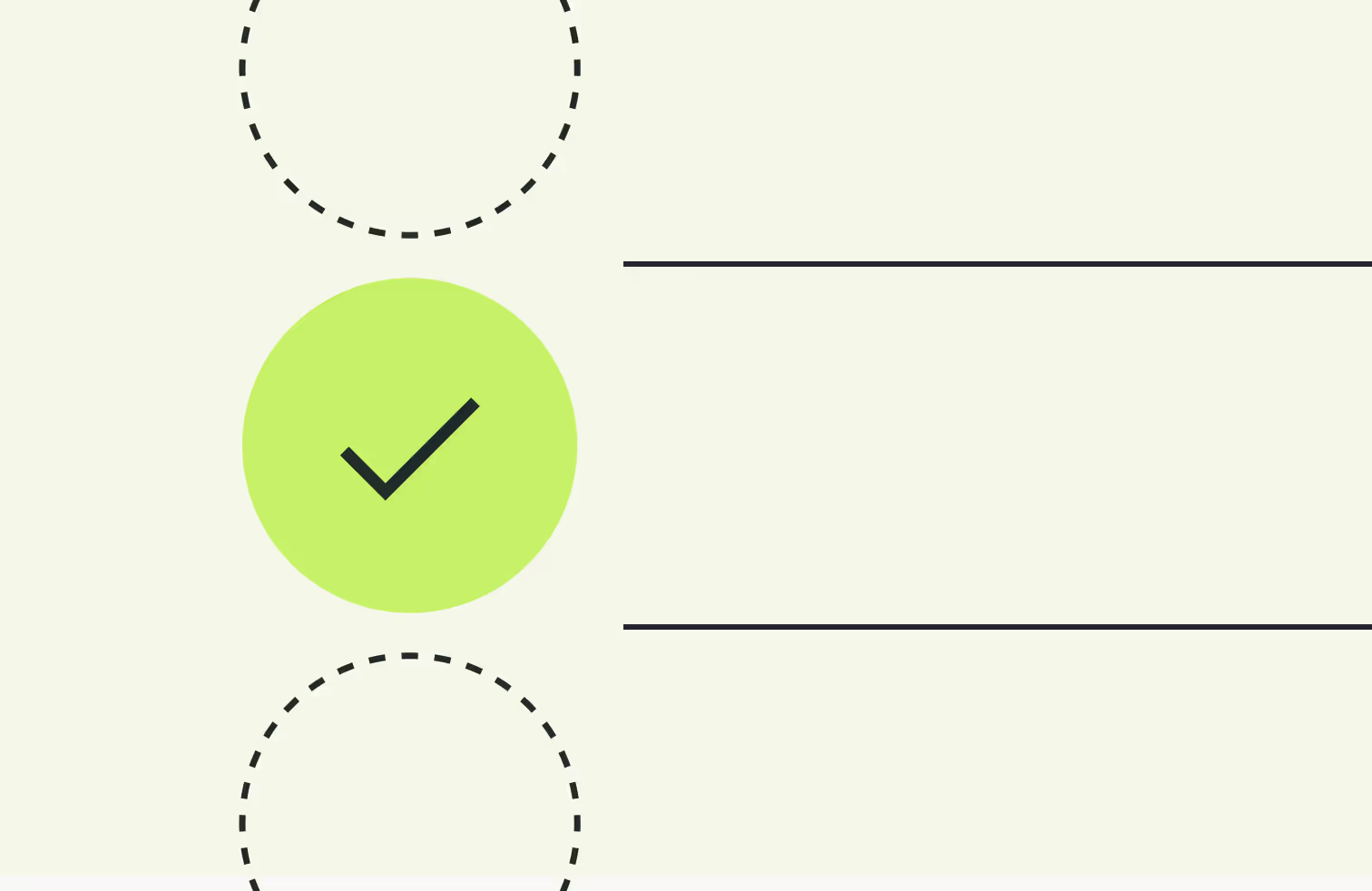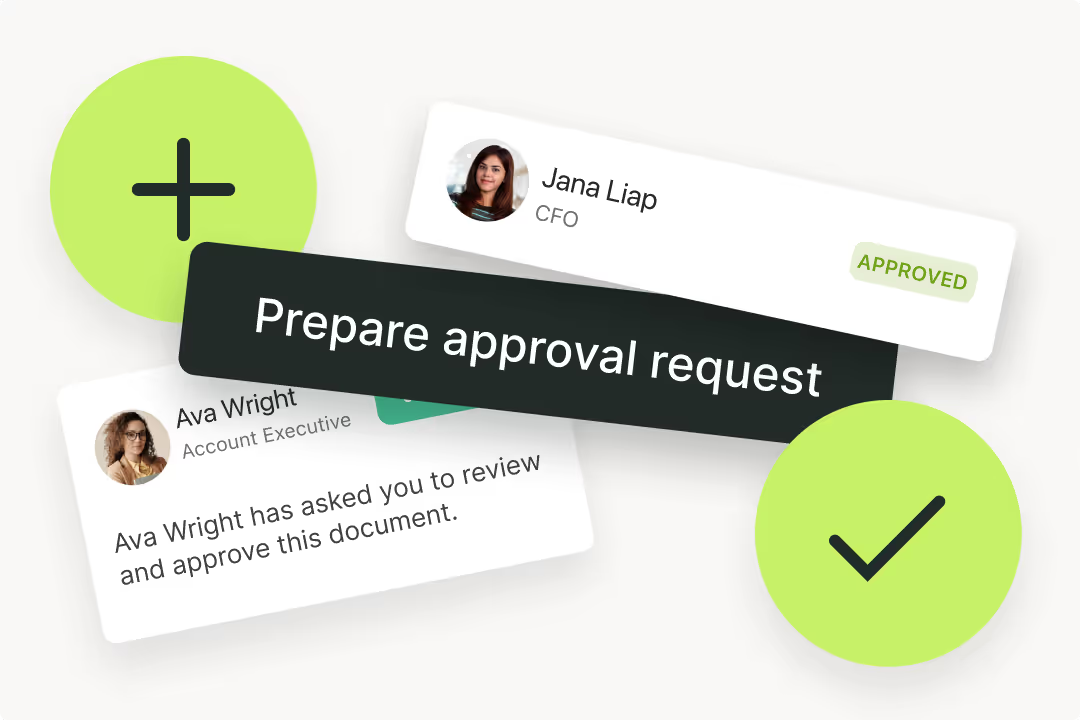Solutions
Customer Support
Resources
Procurement teams are the backbone of any business, ensuring they get the necessary items at the right quality, quantity, and time.
Whether you’re sourcing raw materials for production or purchasing office equipment, these teams play a crucial role across various business functions, so creating a smooth procurement process should be a top priority.
For every aspect of the procurement process, whether it's order purchases, vendor agreements, or service agreements, a contract must be in place to define the specific terms.
Contract issues can lead to misunderstandings, delivery delays, and ultimately, lost deals. This is where effective procurement contract management becomes crucial.
Procurement contract management refers to the process of overseeing and managing contracts related to the acquisition of goods, services, or works from external suppliers or vendors.
This process involves ensuring that the terms of the contract are followed, deadlines are met, and both parties (the buyer and the supplier) fulfil their obligations as specified in the agreement.

Procurement contract management typically includes the following key activities:
This includes drafting the procurement contract, ensuring that the terms and conditions are clear, and that it complies with relevant laws and policies. If you're not sure what a procurement agreement should include, check out this guide to procurement contracts.
Before finalizing the contract, you’ll need to negotiate thoroughly. This involves determining pricing, delivery schedules, quality requirements, and other key terms and conditions. Your goal is to reach an agreement that works for both sides. We have some negotiation tips and tricks if you need them.
Once the contract is in effect, monitoring the supplier's performance is critical. This includes tracking the delivery of goods or services, ensuring quality standards are met, and that the supplier adheres to agreed timelines and terms. Both sides have obligations to meet, so make sure you're compliant also.
At this stage you need to make sure that all parties are in compliance with the legal, financial, and contractual obligations stated in the contract. Proper documentation and record-keeping are vital in case of disputes or audits, and it's also tracking success against your procurement KPIs, too.
You need to proactively manage any changes to the contract that might occur during its lifecycle, such as changes in scope, deliverables, or deadlines. Changes must be documented and agreed upon by both parties at every stage. Any and all amendments can become a source of friction later down the line if you neglect this step.
Once all obligations are fulfilled, the contract is formally closed out. This includes final inspections, acceptance of deliverables, and ensuring that all financial and legal requirements are settled. The more seamless and amicable this is, the more likely you are to secure a contract with the counterparty in the future.
In the past, managing contracts was a slow, manual process—think paper contracts with wet ink signatures and constant back-and-forth emails. This often led to inefficiencies, delays, and compliance risks.
When it comes to closing deals with suppliers, time is money. But traditional procurement contract management makes it tough. Teams have to rely on emails for communication, which can cause missed opportunities and delays.
Plus, contracts often need sign-offs from multiple departments—legal, finance, and senior management—meaning manual approval workflows can drag out contract execution.

Add to that the need to manually upload, record, and securely store third-party contracts, and it becomes clear how easy it is to overlook important deadlines or critical data. The lack of visibility only amplifies the problem, making it even more likely that costly financial losses will occur.
In fact, studies have revealed that poor contract management can cost companies up to 9 per cent of their bottom line. A streamlined procurement contract management system isn’t just a time-saver; it can make a huge difference to your business.
Thankfully we now live in an era where manual contract management is becoming a thing of the past, thanks to intelligent contract automation tools like Juro that have streamlined key aspects of the procurement contract management process.
Let’s explore some of the main ways in which modern procurement contract management systems have transformed procurement teams.
Vendor onboarding is a key part of procurement and the overall business as it ultimately helps them get what they need to keep operations running smoothly. A strong contract management system will allow you to:
Manual processes increase the chance of missing important regulatory clauses or engaging with unreliable suppliers. A robust system like Juro offers:
Visibility can make or break contract management, and traditional methods often leave teams in the dark. Modern systems solve this by:
Negotiating and executing contracts can be a lengthy and frustrating process with traditional methods. With a modern contract management system, procurement teams can:
By embracing modern contract management systems, procurement teams can streamline their processes, reduce risks, and ultimately make smarter, faster decisions that drive business success.
Juro is a contract management solution that empowers procurement teams to reduce risk, streamline workflows, and enhance supplier relationships through AI, automation, and real-time collaboration features.
Let’s break down the key features of Juro that help procurement teams be more effective.
Juro uses a centralized storage system so different types of contracts can be stored all in one unified workspace. This ensures that contracts and key contract details are easily accessible.
You can easily navigate between procurement and other contract types thanks to a clear tagging structure built into contracts. Juro also offers enterprise-level security so you can ensure that all your contracts are in safe hands.

You can also extract key information from your contracts using Juro’s AI extract features, which have helped users process twice the number of documents in the same amount of time.
Juro helps procurement teams create contracts instantly and at scale by using pre-approved templates so they can ditch manual legal review, or lengthy turnaround times for legal drafting.
These pre-defined templates already include all necessary legal terminology, so all you need to do is fill in the relevant details for your specific scenario and you’ll be good to go.
Juro also has conditional logic features that automate certain workflows and actions based on conditions that you set, such as displaying payment terms or delivery schedules based on what a supplier has agreed to in the contract.
{{quote1}}
Juro has been designed to streamline one of the most important contract management stages, which is the collaboration and approval process.
Juro helps you set approvers directly on the platform based on specific contract details. For example, if a contract's value exceeds a particular threshold, it could automatically require approval from senior management or finance.

Juro has also integrated Slack so users can upload third-party contracts, self-serve contracts, and track negotiations all in one platform.
Once contracts and approval workflows are set up, you can track the viewing of the contract and approval in real-time. This means you’ll no longer need to follow up with other teams to confirm delivery and approval.
Juro’s automated contract approval workflow has enabled clients to go from waiting days to receiving same-day approvals without sending a single email.
{{quote2}}
The future of procurement contract management lies in AI and data-driven decision-making, with Garner predicting that half of procurement contract management will be AI-enabled by 2027.
As procurement teams begin to scale and have more complex requirements, those that rely on traditional contract management and don’t adopt modern CLMs risk staying behind.
If you’re looking to enhance your procurement contract management, Juro helps automate and streamline mundane processes so you can close more deals, manage supplier relationships, and stay compliant with ease.
Fill in the form below to find out more about how Juro can support your procurement team!

Lorem ipsum dolor sit amet, consectetur adipiscing elit. Suspendisse varius enim in eros elementum tristique. Duis cursus, mi quis viverra ornare, eros dolor interdum nulla, ut commodo diam libero vitae erat. Aenean faucibus nibh et justo cursus id rutrum lorem imperdiet. Nunc ut sem vitae risus tristique posuere.

